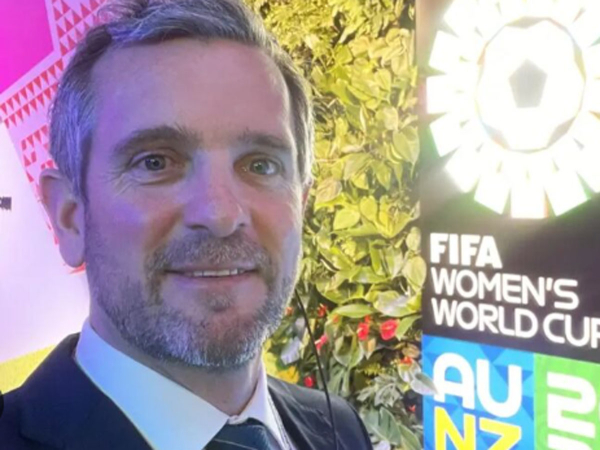[ad_1]
It’s an awfully long way to Bruce Bay in South Westland from just about anywhere.
But this week more than 100 people made the trek there just to be at Te Tauraka o Waka Maui marae for Waitangi Day.
And a good half of them, possibly more, were Pākehā.
The legendary landing place of Māui is a six-hour drive from Christchurch and one of the most remote marae in the country.
Perched on the edge of State Highway 6 with only a row of mammoth boulders and a fence protecting it from the wild Tasman, the exquisite whare built in 2005, is the ancestral home of Ngāti Maahaki.
And every second year, the small Poutini Ngāi Tahu hapū – whose members mostly live far from home – descend on the place to throw the doors open to the public, offering hospitality, hangi and a bit of history on the side.
Four hundred people showed up for last year’s event, hosted by the iwi’s northern hapū, Ngāti Waewae at the more accessible Arahura marae.
But Ngāti Maahaki kaumatua Paul Madgwick is happy with this year’s event.
“It was a good cross-section of the community,” he says.
“And a good day. I think there’s a growing appreciation of the other side of Waitangi Day and a yearning to learn more about who we are as a people.”

The crowd included the usual Waitangi Day suspects – officials from local councils and government departments; fire safety officers spruiking smoke alarms; local health workers urging brochures; and new potatoes on manuhiri.
But they were greatly outnumbered by those who were there to support manawhenua and learn more about them.
“Toitu te Tiriti,” said the cheerful young man who opened the powhiri in the only slightly political exhortation of the day.
“Mauri ora!” responded the guests, with enthusiasm.
And after a brief break for a cup of tea, they piled back into the whare for a talk by Madgwick on the history of Ngāti Maahaki, their land losses, their part in the Ngāi Tahu Treaty claim, and its settlement.
That in itself is a heartening sign, says Ngāti Maahaki’s Makaawhio Runanga chief executive Kara Edwards.
“The fact that so many have come here today, and were so engaged with the korero about our heritage and history – there was no one left in the whare kai – everyone was sitting in the whare, and that’s a great thing. People wanting to talk to us, check us out, is really healthy.”
The only downside for the small hapū is that Ngāti Maahaki people themselves don’t get many opportunities to hear the stories, she says.
“Most of us live and work away … we’re all here as volunteers and we’re always in the kitchen hosting when that kōrero is happening.

“We’ve had to fight to know about our cultural heritage and it’s so fragile – Paul’s an expert but there’s probably three people like that on the Tai Poutini (West Coast) and no one with his depth – so if we lost him it could all be gone.”
Madgwick, whose day job is editing The Greymouth Star, was selected as a boy to learn his people’s stories and was taken out of class by his elders to attend Māori Land Court hearings.
Like most histories of the time, it’s not a comfortable listen for a Pākehā.
Almost all the land on the West Coast – 7.5 million acres – was bought by the Crown for 300 pounds, in 1860.
The only exceptions to the sale were 6500 acres of Māori reserves including the Arahura River and its pounamu – which for Māori was the deal-breaker.
“[James] Mackay returned gleefully with a hundred pounds change and his deed of purchase – which he had to borrow from Ngāi Tahu because his copy was lost the next day,” Madgwick tells the attentive manuhiri.
“In his haste to get out of town he crossed the Grey River in flood and got turfed out of his boat and the satchel with the deed he’d just signed went to the bottom .”
Although the chiefs had bargained for all the land between the Arnold and Hokitika Rivers, they were given mostly useless land, Madgwick says, although they did retain their 500 acre pa at Mawhera (Greymouth).
“As soon as the settlers arrived with the goldrush they plonked their town right on the pa site and found they had to negotiate leases with Māori and they resented that. They still grumble about it today.”
Over the years, the government nibbled away at Poutini Ngāi Tahu’s remaining reserves, taking chunks of land for a failed settlement at Jackson Bay, a wartime aerodrome and roads, Madgwick says.
The Arahura River and its pounamu were restored to Ngāi Tahu in 1976 under the Muldoon government.
But it took until 1997 before the Crown apologised for its other breaches of contract – and paid Ngāi Tahu compensation of $170 million – a sum it has now grown to $2 billion worth of assets.
Waitangi Day guests listened attentively to the potted history of the hapū – which at the time of the Mackay purchase was down to just 102 people –after the ravages of Te Rauparaha and new diseases.
It’s been rebuilding ever since; but even up to the 1980s, Māori were barely visible on the West Coast, Madgwick says.

These days there are two beautiful marae (Te Tauraka Waka a Maui opened in 2006), new visitor centres going up to mark the ‘Pounamu Pathway’ and manawhenua sitting at council tables.
“Poutini Ngāi Tahu today compared to what we were 30 years ago, is unreal – we’re streets ahead,” Madgwick says.
“The settlement was part of it but it coincided with the Māori cultural renaissance and we’re now visible in business, in services in the community in ways that we couldn’t have dreamed of back then.”
And what does he make of the ‘sandflies’* nipping at the edges of the Treaty in Waitangi this week?
“A lot of it’s been said in ignorance, I think. They’ve been learning that the hard way at Waitangi this week. That won’t do them any harm.”
Kara Edwards is less sanguine.
Poutini Ngāi Tahu has a great deal to lose if Treaty clauses are removed from legislation or watered down – especially Section 4 of the Conservation Act, which obliges the Department of Conservation to “give effect to the principles” of the Treaty, she says.
“If we think of here, where 95 percent of land is managed by DoC, and Treaty clauses are what our partnership hangs off … if you remove them how are the government partners going to respond and what will that mean on the ground?” she worries.
Poutini Ngāi Tahu has built up strong and enduring relationships locally and been able to employ people and work with DoC in programmes like Jobs for Nature, Edwards says.

“So when they have enlightened local leadership we can achieve that, but they do it because they have structure and policy that directs them to work in that way as partners.
“If you remove those clauses, over time, that’s an erosion of the partnership. We struggle now to have a seat at the table at times, so that’s a concerning thing.”
Eighty-something kuia Huriana Mason agrees.
“I know the Government is saying they won’t back Seymour’s Treaty bill past the first reading, but the problem is it’s out there in the community now, isn’t it. And there are people who support it –prejudice is still alive and well in places.”
By now the southern sandflies are nipping at the ankles of the crowd gathered to see the hangi come up behind the whare kai, sparking slap dances and hearty blasts of insect repellent.
A young French tourist couple, who just happened to be passing by and were welcomed in, take excited selfies of their stencilled ta moko.
Pākehā neighbours from Haast and Hokitika settle down at the long tables to tackle a plateful of hangi and steam pudding.
It’s been a good day, they say. They’ve learned heaps.
And as the manuhiri depart, Madgwick, who is also Makaawhio iwi chair, gets ready to wheel out the cleaning cart and see to the wharepaku.
Te Tai Poutini is another country, you might say. They do things differently there.
* At Waitangi , the Government, especially Act leader David Seymour, was heckled and compared to an annoying insect, the sandfly in particular. He was indignant, saying not even Trump’s opponents called him an insect. He was seemingly unaware of the historical significance of the reference.
The term comes from a famous prophecy by the great Ngāti Hine general, Kawiti, who had defeated the British forces using an ingenious form of trench warfare. But he decided fighting was futile after the battle of Ruapekapeka in 1846.
Kawiti told his people to hold fast to the taonga and values of their ancestors, and to wait “until the SANDFLY nips the pages of the book” (the Treaty).
“Then you will rise and oppose,” he instructed.
His Bay of Islands descendants have taken this as a special injunction to act, in defence of Te Tiriti.
[ad_2]
Source link





















